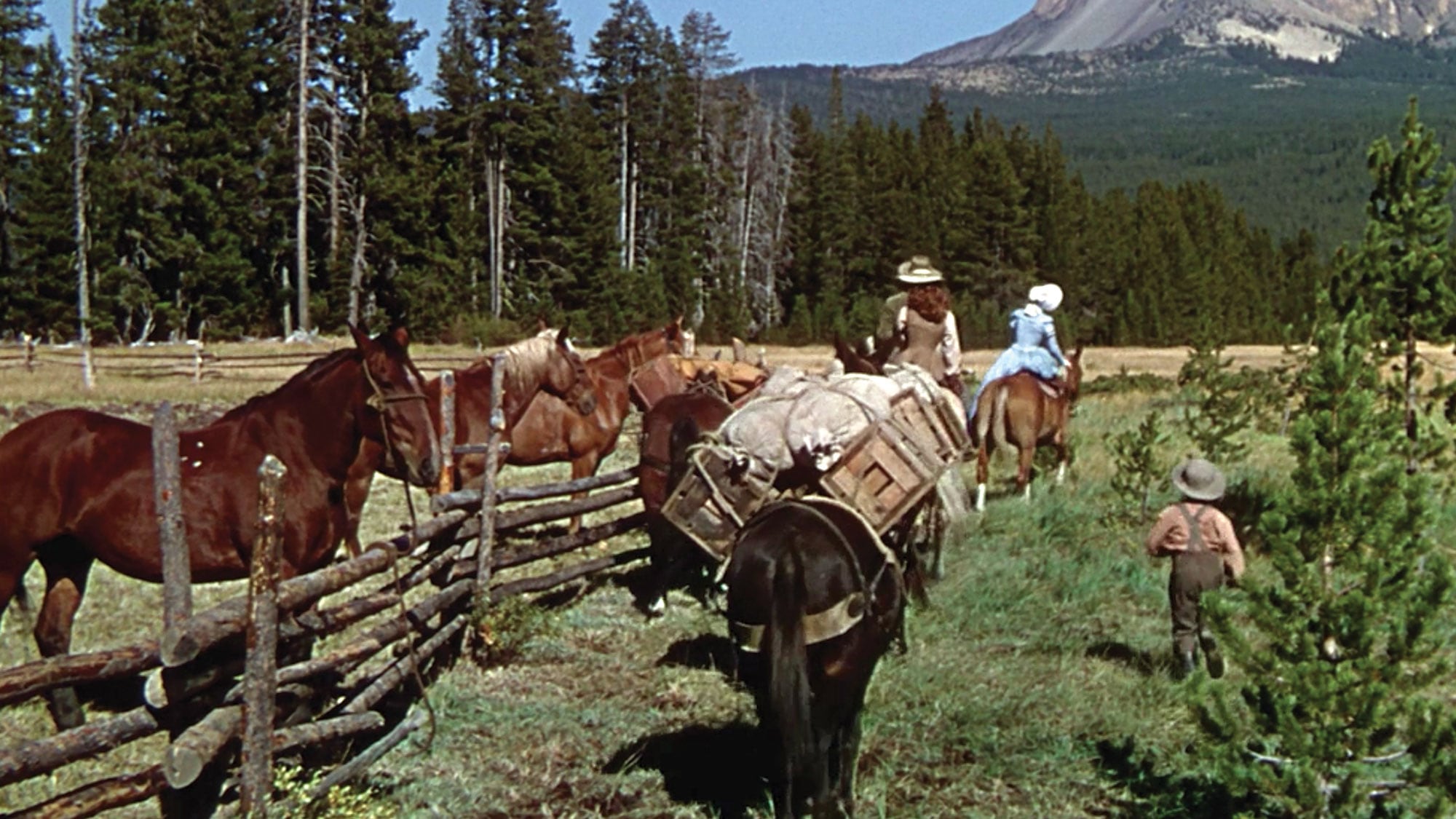Browse through any list of Oregon films, and the Western is an undeniable fixture. Before 1970, its presence here was borderline monopolistic, as Hollywood studios churned out dozens of gunfighter and pioneer pictures each year.
The legacy of these films is complicated, of course, as they reflect the state's inextricable relationship with frontierism, and do so with regret, romance and revision. That said, when a genre intersects with everyone from John Wayne to Jim Jarmusch, the meaning of a Western can vary widely. Here are the five greatest Oregon Westerns, with a few criteria:
• Selections must have been shot in Oregon, if not set here too. No soundstages (Seven Brides for Seven Brothers) or Spain (Sisters Brothers).
• Civil War films don't qualify, so The General and Shenandoah are out.
• They must espouse qualities or themes of the genre, even if not set in "The Old West."
Canyon Passage (1946)
There is no canyon in Jacques Tourneur's portrait of a fledgling Jacksonville, the small Southern Oregon town just southwest of Medford, circa 1856. No passage either. In fact, much of this early Technicolor Western seems fashioned to trick 1940s audiences into watching something far smarter and shiftier than normal studio fare. Canyon Passage brims with dramatic conundrums, poetic dialogue, free women, competing Old West philosophies and livewire flirting. Best of all, the director of Out of the Past and Cat People eschews easy stereotypes for a slippery ecosystem of hustlers, nihilists, romantics and homemakers counting on each other not to shatter a fragile peace. Amazon Prime, Hulu, Sling TV, Starz.
Day of the Outlaw (1959)
A clear influence on Quentin Tarantino's The Hateful Eight, this snow-packed thriller claims eastern Wyoming as its setting, but its pines and peaks clearly betray the Deschutes National Forest where it was filmed. One of the best outings from André De Toth (House of Wax), Day of the Outlaw opens in a cattle town already on the brink of violence when mutineering cavalrymen thunder to its doorstep. In stark black-and-white, Burl Ives gives the film's keystone performance as an Army captain who deigns to lead mad dogs. What's his responsibility when their leash inevitably snaps? Watch for one of the tensest dance sequences ever committed to film. iTunes.
Sometimes a Great Notion (1971)
Admittedly, this is a genre stretch, but Paul Newman's 1971 family drama, based on the novel by Oregon legend Ken Kesey, does function as a logical update of frontier morality tales. A family of loggers in the fictional coastal town of Wakonda (actually Kernville meets Newport) defies a union strike to flaunt their independence. Not a Stetson or six-gun in sight, but as factions solidify, the Stamper family (Newman, Henry Fonda, Michael Sarrazin) absolutely resembles the archetypal ranchers who won't admit the railroad is encroaching. They can keep trying to embrace their definition of "The West," but there's always a price for beating back modernity. Amazon Prime, Netflix, YouTube.
Dead Man (1995)
Turning to a postmodern page, Jim Jarmusch dreams of the frontier as a purgatory with Dead Man. As in all Jarmusch, the psychological experience takes precedence in this Johnny Depp-helmed vision quest, and Neil Young's score perfectly straddles the line between epic and woozy. Jarmusch uses the backdrop of Southern Oregon's Josephine County uncommonly, too. There's little natural majesty as Depp's character ventures into the wilderness with bounty hunters on his tail and a Native companion called Nobody (Gary Farmer) at his side. No, Oregon stands in more for cultural and topographical déjà vu. Perhaps most notably, the respect paid to Farmer's character is a high watermark for indigenous people in a genre with a foul history of exploiting them. Google Play, YouTube.
Meek's Cutoff (2011)
You don't need How the West Was Won when you have Kelly Reichardt. In her 2011 masterpiece, the filmmaker positions the audience to look through the eyes of pioneer women lost in the Eastern Oregon desert. Starring Michelle Williams, Bruce Greenwood and Rod Rondeaux, Meek's Cutoff is an unparalleled meditation on Manifest Destiny in the micro. With wagon wheels cracking and water scarce, the sheer struggle blinds the settlers to their culpability. They can see only how far they've come, not what they did by coming. By the way, Reichardt's new film, First Cow, would definitely be a contender for this list, once it's officially released. Amazon Prime, Crackle, Hulu, iTunes, Tubi, Vudu.
